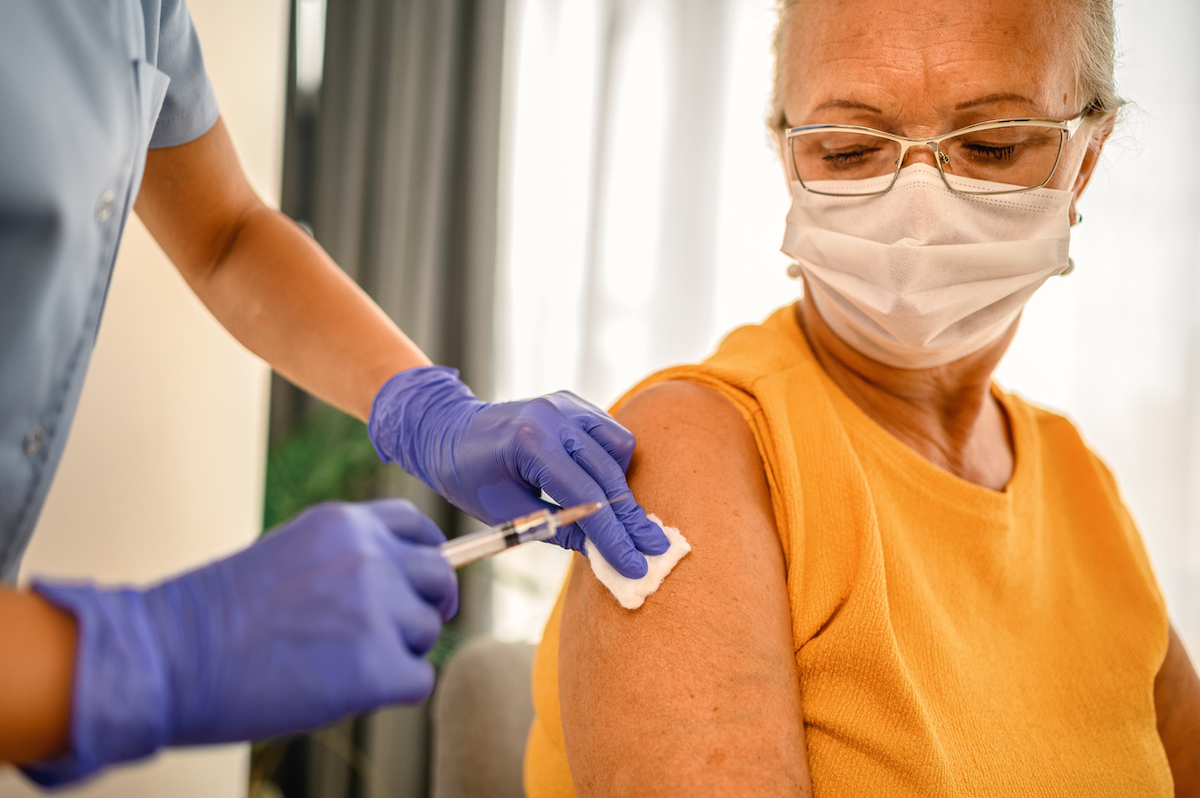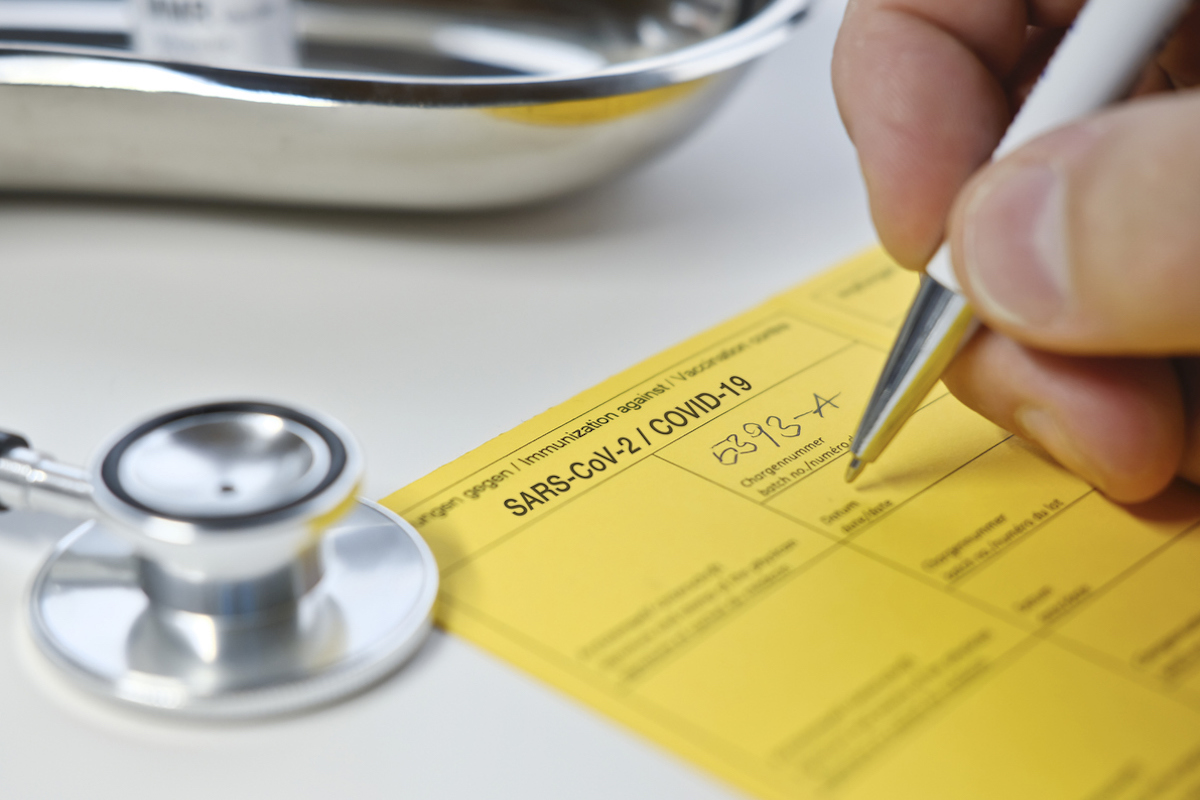As doses of the coveted immunizations begin to run thin in many areas, health officials are growing concerned that speeding through supplies could mean that patients won’t be able to receive their vital second shot on time, which is scheduled to be three to four weeks after the first. But in a statement released to CNN on Jan. 23, the FDA updated their guidance on the interval of time between the two doses, saying that a slightly longer wait would not jeopardize the effectiveness of the vaccine. The agency says that it “recognizes that getting as many people as possible across the country fully immunized will help to curtail the spread of the virus that causes COVID-19 and should be a priority,” specifying that “modest delays in the administration of the second dose, if absolutely necessary, would not be expected to decrease the protection conferred by the second dose and are preferable to not completing the 2-dose series.” And for more on the second shot, Dr. Fauci Says He Had These Side Effects From His Second Vaccine Dose. The FDA isn’t the only agency to change its guidelines. On Jan. 21, the U.S. Centers for Disease Control and Prevention (CDC) updated their clinical considerations on how long doses could be spaced apart, similarly stating that some flexibility in the timing of the booster shot was acceptable. “The second dose should be administered as close to the recommended interval as possible,” the guidelines read. “However, if it is not feasible to adhere to the recommended interval, the second dose of Pfizer-BioNTech and Moderna COVID-19 vaccines may be scheduled for administration up to six weeks (42 days) after the first dose,” adding that “there are currently limited data on efficacy of mRNA COVID-19 vaccines administered beyond this window.” And for more on slowing the spread of coronavirus, discover The One Thing You Can Stop Doing to Avoid COVID, According to Doctors.ae0fcc31ae342fd3a1346ebb1f342fcb The changes come less than a month after the FDA made a strong argument against waiting longer than the recommended three weeks between Pfizer-BioNTech doses or four weeks required between Moderna doses due to limited supplies. “We know that some of these discussions about changing the dosing schedule or dose are based on a belief that changing the dose or dosing schedule can help get more vaccine to the public faster,” the agency said in a statement on Jan. 4. “However, making such changes that are not supported by adequate scientific evidence may ultimately be counterproductive to public health.” And for more up-to-date information, sign up for our daily newsletter. Other top medical experts backed up the decision to allow for a longer grace period between doses. This includes Anthony Fauci, MD, chief medical adviser to the White House, who saw no reason for concern over slightly expanding the wait time. “Sometimes the situation is stressed where it’s very difficult to be exactly on time,” Fauci told CNN in a Jan. 22 interview. “I don’t see a big problem with that if the situation on the ground means the stress is such you can’t precisely do 28 days or 21 days.” And if you’re worried about getting sick, This Strange Symptom Could Be the Only Sign You Have COVID, Study Says.



